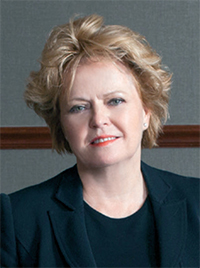Becker’s Hospital Review: Cognizant’s Global Practice Leader of Healthcare Consulting Discusses 2016 Trends Poised to Transform Healthcare
 |
“Changing market forces coupled with disruptive technologies that include social, mobile, analytics, cloud, robotics and the Internet of Things (IoT) are driving a radical transformation in the healthcare industry,” writes Trish Birch. “New innovative business models, virtualized care delivery processes, new patient engagement solutions, increased competition from new entrants and a blurring of the lines between payer and provider entities are direct consequences of this disruption.” Excerpts:
“The healthcare industry will see continuing activity in these areas as well as in technology innovation―specifically around eight key technology trends that will play a central role in influencing the industry over the next three to five years.
1. Telemedicine: Remote consultation and monitoring through telemedicine and tele-health have gained significant acceptance driven by escalating costs, an aging population, the shortage of primary care physicians and the ubiquity of consumer mobile and computing resources. Healthcare organizations should consider implementing these tools now, as new federal and state laws mandating coverage and parity of telemedicine services―such as the Medicare Tele-health Parity Act of 2015―will widen the definition of telemedicine.
2. “Everything” as a service (XaaS) gains prominence: Adoption of XaaS options will accelerate in the near future to enable both cost reductions and an integrated web of consumer facing digital capabilities. By leveraging XaaS based solutions, organizations can avoid using scarce capital dollars to purchase, deploy and manage technology, and instead use the funds to focus on other critical initiatives.
3. Social media to research and make healthcare decisions: Though consumers have been actively using social media, many healthcare organizations are still lagging behind in adoption, even though there is recognition that it can be used to improve consumer experience and enhance an organization's brand image. Moving forward, the industry should expect to see an increase in the use of social media by payer and provider organizations.
4. Application programming interfaces (APIs) evolve as a strategic enabler: APIs will gain importance in healthcare as companies can easily implement scalable, HIPAA-compliant APIs on top of existing IT architecture for interoperability with other stakeholders. Emerging API-powered solutions have enabled organizations to reduce costs, improve processes and enhance patient experience.
5. Next generation analytics and artificial intelligence (AI): Combined with enhanced patient access tools, the use of analytics will be critical at the point of care, where algorithms and other digital tools provide health insights that help in achieving the Triple AIM objectives of reduced costs, better quality of care and improved patient satisfaction. In the future, we can see genomic data being used to further improve prevention, intervention and outcomes.
6. The explosion of the IoT: With changing consumer expectations, the IoT is emerging as a way to take connected health to the next level by reducing the cost of care and enhancing consumer engagement and patient care. While the IoT is still in a nascent stage and there are challenges in sharing protected healthcare, we believe it will have a deep and pervasive impact due to continuing innovation.
7. Cybersecurity will evolve from protection to prediction: In 2016, healthcare organizations will begin to re-evaluate their data privacy, security strategy and consent approaches. There will be an increased focus on data lineage, tracking data flow (external/internal) and deployment of advanced analytics models to predict cybersecurity risks.
8. Robots and printed parts are on their way: The advent of disruptive robotic and 3D printing technologies will change the way healthcare is provided in the future. The industry will continue to see the automation of high volume-low value, rudimentary and standardized activities which could drive both lower costs and shift the role of some providers to become more advisory.”
Click here to read more.

